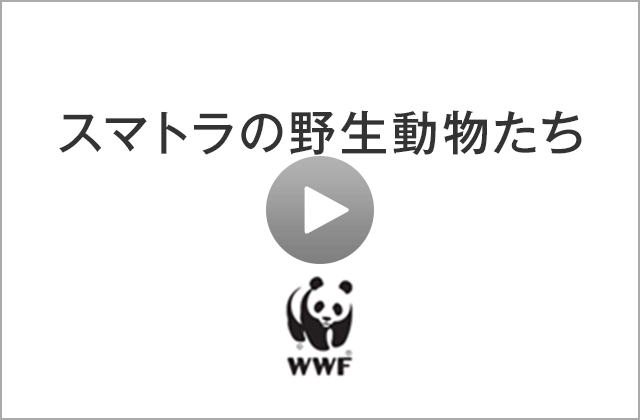Corporate Information
- Forest conservation activities supported by account openings
- World Wide Fund for Nature Japan (WWF Japan) conducts the Project for Forest Conservation in Sumatra as part of ongoing efforts to protect nature on the island of Sumatra, Indonesia. Sony Bank endorses the organization’s activities and has been supporting the project since 2012. Here we provide a report on activities thus far.
Overview of Sony Bank's Support
For every Sony Bank account opened since September 2012, Sony Bank has donated 10 yen to the Project for Forest Conservation in Sumatra. Customers can support this project simply by opening an account with Sony Bank.
- Donations are used for forest conservation activities in general.
- Every 1,000 yen donated is equivalent to plant one tree for forest regeneration (covers the cost of planting one sapling and nurturing it for three years).
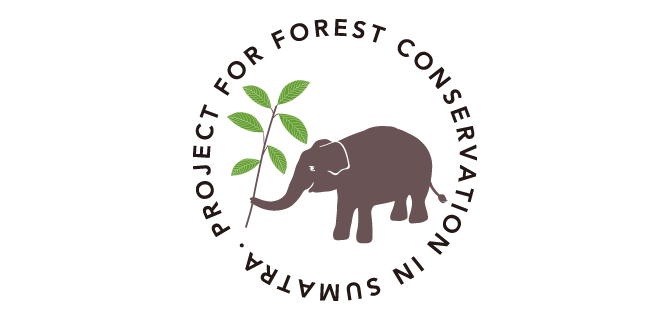
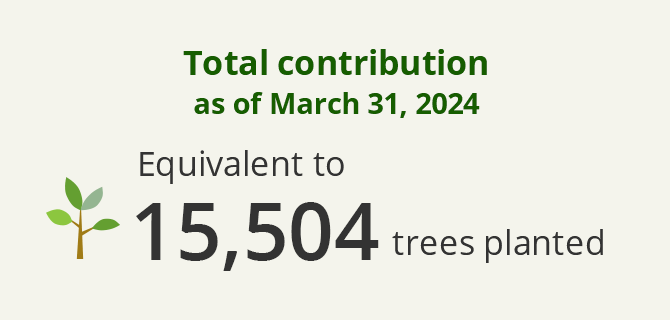
How the Project Works
- Customer
-

Opens an account with
Sony Bank
- Sony Bank
-

Donates 10 yen per account opened (paid by Sony Bank)
- WWF Japan
-

Uses donations for forest conservation activities
Customers are not required to donate directly to WWF Japan. Instead, Sony Bank makes a donation on your behalf.
Disappearing Forests and Endangered Wildlife
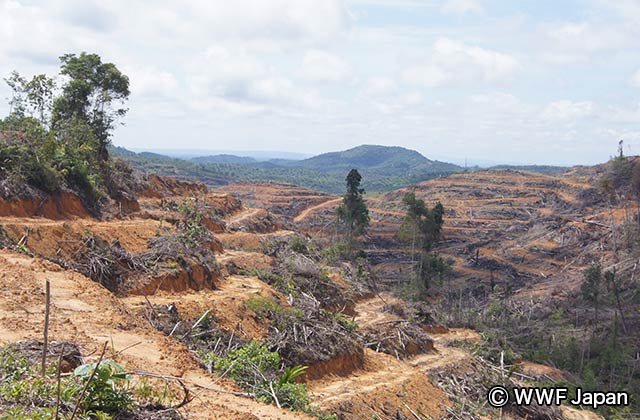
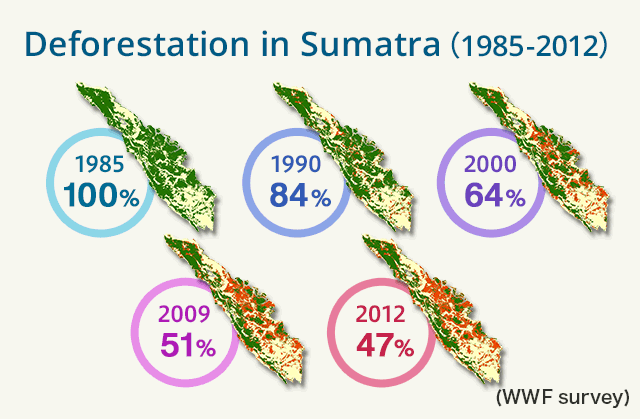
The island of Sumatra is home to lush natural forests, including national parks that have been designated as UNESCO World Heritage Sites. Between 1985 and 2012, however, 13.5 million hectares of forest have been lost, effectively cutting Sumatra's forests in half. Japan imports a considerable amount of photocopying and printing paper from Indonesia, which has had an undeniable impact on the island.
Furthermore, rapid deforestation has led to various wildlife that have long inhabited Sumatra's wilderness now being on the verge of extinction. At the same time, farmland is being destroyed by wildlife in search of food, and conflicts with humans have become a serious issue.
Against this backdrop, there is a need not only to protect forests and wildlife, but also to create a system that allows islanders to live with peace of mind.
Project for Forest Conservation in Sumatra Activity Report
Reforestation Efforts
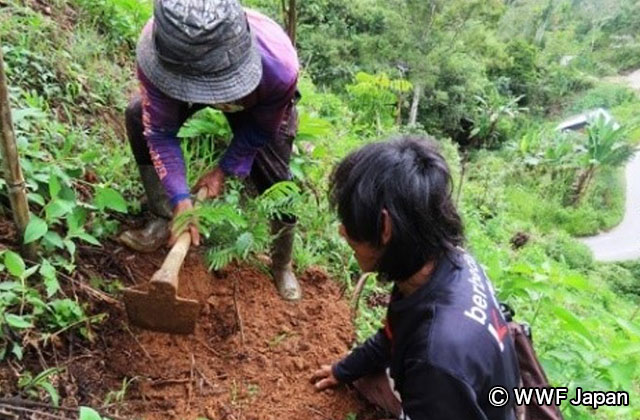
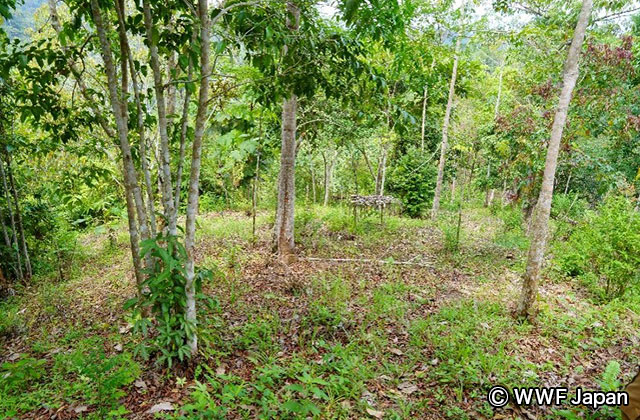
One of the reasons behind rapid deforestation on the island of Sumatra is the illegal logging of forests. To restore illegally deforested areas, WWF Japan procures seeds and seedlings locally for reforestation. They plant fruit trees and vegetables together as agroforestry, aiming to provide food and a source of income for the local community. Agroforestry is a method that aims to both restore biodiversity and harvest useful crops by planting a combination of multiple species of crops and native plants while preserving the natural trees and other plants that are already growing.
Promoting Sustainable Agriculture
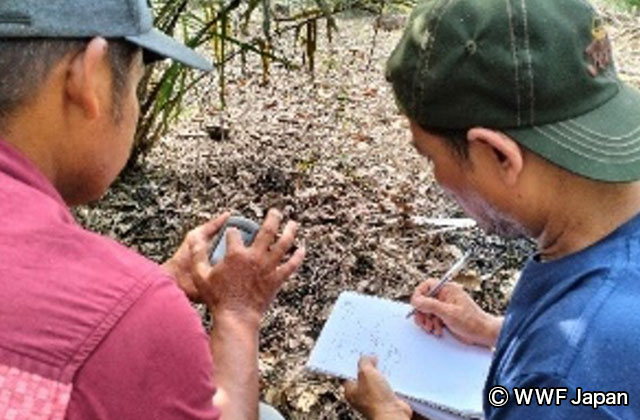
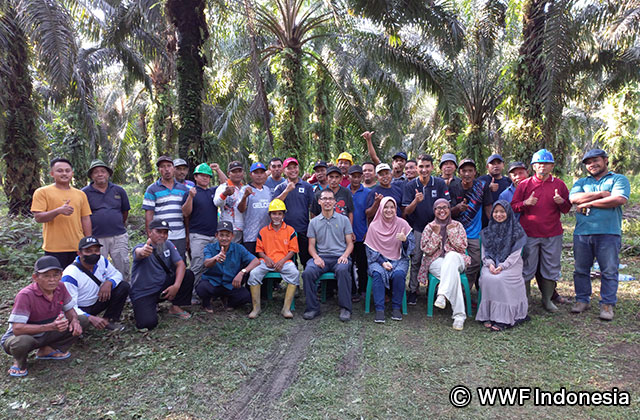
Another major factor in deforestation is the development of agricultural land for the production of oil palm and natural rubber. To improve this situation, the project is engaged in activities such as training for small farmers to increase productivity and profitability on existing farmland, establishing organizations such as agricultural cooperatives, and ensuring traceability to prove that the farmland is non-deforested. In the province of Kuantan Singingi, Riau, where the activities take place, a group of small-scale oil palm farmers have obtained RSPO certification (issued by the Roundtable for Sustainable Palm Oil), an international certification system for the sustainable production and use of palm oil. Since then, the number of member farmers has grown and the activities have expanded.
Camera Traps
The Sumatran rhinoceros and tiger, both native to the island, have been designated as endangered species. As part of efforts to better protect endangered wildlife and further crackdown on poachers, WWF Japan has set up camera traps in various parts of the forest to understand the habitats of rare animals that live on the island.
Environmental Education
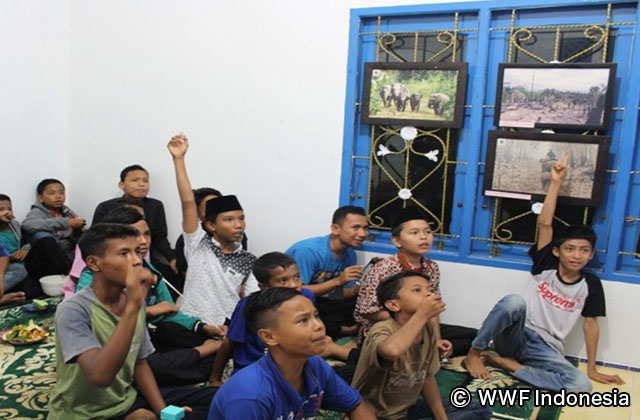
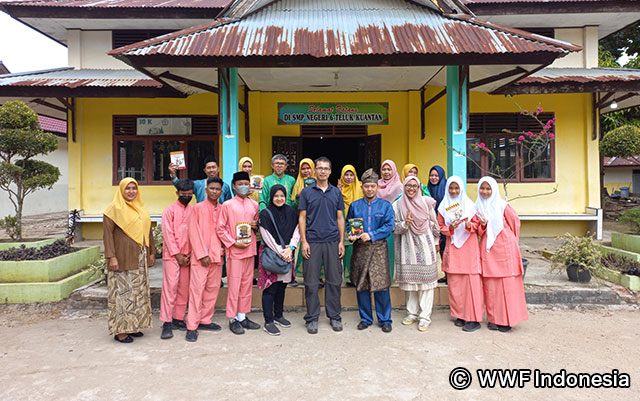
To achieve a sustainable society, it is also important to raise environmental awareness among children, who will be the future leaders of their communities. To this end, WWF-Indonesia, the provincial education department, and a university have jointly prepared an ESD (Education for Sustainable Development = ESD) textbook for junior high school students in Kuantan Singingi, Riau, Sumatra, Indonesia and have begun training teachers and using the textbook on a trial basis. It is important to raise awareness of the need to use natural resources sustainably, since many people already benefit from nature's gifts in their daily lives and cultural activities.

